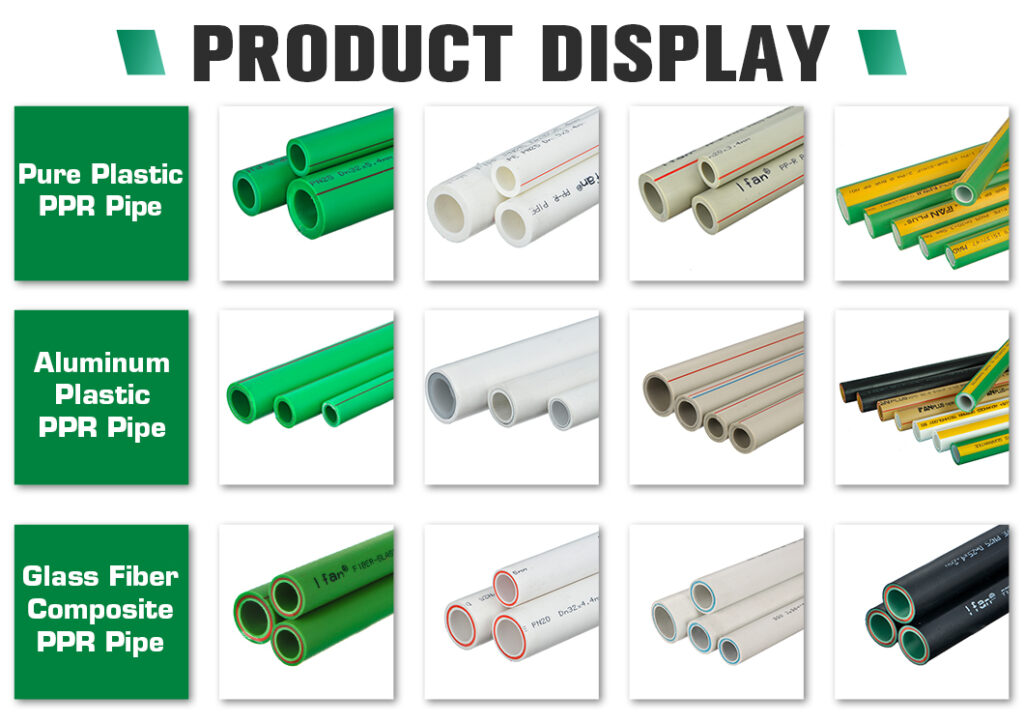Is the thicker the PPR pipe, the better? Water is an essential element of life, and the availability of clean and safe water is crucial for human health and well-being. Water distribution systems are responsible for delivering water from its source to homes and businesses. The diameter of water pipes is a critical factor in determining the efficiency and effectiveness of the water distribution system. Generally, thicker water pipes have several advantages over thinner ones, making them better for water distribution systems. This is our Facebook Website:www.facebook.com.
Advantages of thicker pipes
High Speed
One of the primary advantages of thicker water pipes is that they can transport more water at a faster rate than thinner pipes. The amount of water that a pipe can carry is directly proportional to its diameter. Thicker pipes have a larger cross-sectional area, which allows them to carry a larger volume of water. As a result, they can supply water to more customers and homes, which is particularly important in areas with high demand for water.
Lower Friction Loss
Thicker water pipes also have lower frictional losses compared to thinner pipes. When water flows through a pipe, friction between the water and the pipe walls causes a loss of pressure. This pressure loss is higher in thinner pipes than thicker ones because of the larger surface area of the pipe. Consequently, thicker pipes have lower frictional losses, which means that they can deliver water more efficiently over long distances.

High Safety Factor
Another advantage of thicker water pipes is their greater resistance to leaks and bursts. Thicker pipes are less likely to develop cracks or leaks, even under high-pressure conditions, which reduces the risk of water loss and contamination. Moreover, thicker pipes are less prone to bursting due to the high pressure of water flow. Burst pipes can cause significant damage to property, and thicker pipes are better able to withstand the pressure and reduce the risk of damage.
Long Life
Thicker water pipes also have a longer lifespan than thinner pipes. Thicker pipes are made of more durable materials, such as cast iron, ductile iron, or PVC. These materials are less likely to corrode or degrade over time, which means that thicker pipes can last for several decades without needing to be replaced. This reduces the cost of maintaining and upgrading the water distribution system, which is beneficial for both the water utility and customers.
Reduce Pollution
In addition, thicker water pipes can reduce the risk of water contamination. Water that sits in pipes for extended periods can become stagnant, which can lead to bacterial growth and other types of contamination. Thicker pipes have a higher flow rate, which means that water moves through them more quickly, reducing the risk of stagnation and contamination. Thicker pipes are also less likely to be affected by fluctuations in water pressure, which can cause water to backflow and lead to contamination.
In conclusion, thicker water pipes have several advantages over thinner ones. They can transport more water at a faster rate, have lower frictional losses, are more resistant to leaks and bursts, have a longer lifespan, and can reduce the risk of water contamination. These benefits make thicker pipes a better choice for water distribution systems, particularly in areas with high demand for water. While the cost of installing thicker pipes may be higher initially, their long-term benefits can make them a more cost-effective solution over time.
We are one of the largest suppliers in China with 30 years of experience, We have 13 production lines, the certificate is complete and products sold around the world, receive a high reputation. I look forward to building a business relationship and working with you, and looking forward to hearing from you.

